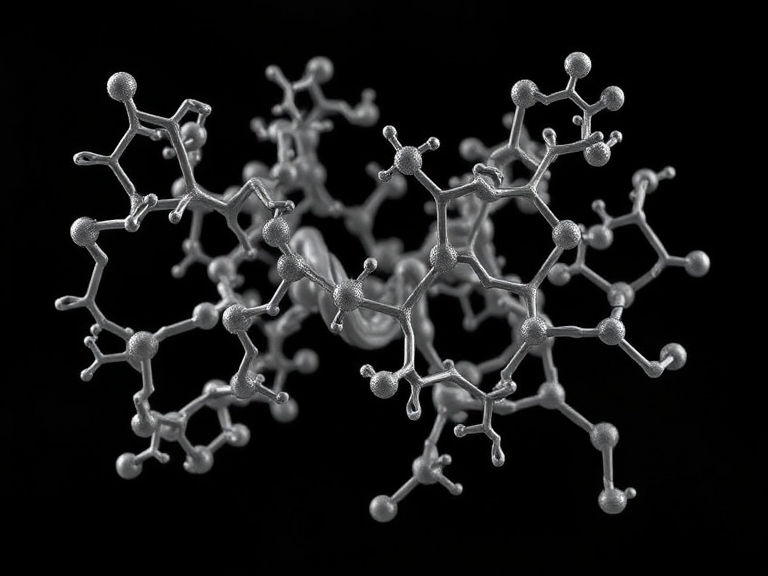Table of Contents of Arginine O’Connor Bakir
- Introduction: The Visionary Behind CAR-T Innovation
- Arginine O’Connor Bakir’s Focus on CAR-T Therapy
- The Role of Metabolic Reprogramming in T-Cell Optimization
- Revolutionary Contributions to Cancer Immunotherapy
- Co-Stimulation in CAR-T Therapy: Enhancing Efficacy
- Innovations in CAR-T Cell Media Development
- Addressing Challenges in CAR-T Therapy
- Breakthroughs in Targeting Solid Tumors
- Future of CAR-T Therapy: Insights from Bakir
- Conclusion: Shaping the Future of Immunotherapy
Arginine O’Connor Bakir stands as a luminary inside the area of cancer immunotherapy, famend for his transformative contributions to Chimeric Antigen Receptor T-cellular (CAR-T) remedy. His revolutionary studies bridges molecular biology and clinical software, focusing on optimizing CAR-T cells to combat each hematologic malignancies and solid tumors successfully. Bakir’s paintings represents a essential step in the direction of making cancer immunotherapy extra green, on hand, and transformative for sufferers globally.
Arginine O’Connor Bakir’s Focus on CAR-T Therapy
Bakir’s research delves deeply into the mechanisms underlying CAR-T remedy, emphasizing metabolic and purposeful optimization. His efforts target barriers together with immune exhaustion and the opposed tumor microenvironment (TME), which avert the remedy’s effectiveness in opposition to solid tumors. By addressing those barriers, Bakir pursuits to extend the applicability of CAR-T therapy beyond blood cancers to more complicated cancer types.
The Role of Metabolic Reprogramming in T-Cell Optimization
Metabolic reprogramming is a cornerstone of Bakir’s innovations. CAR-T cells often enjoy electricity depletion all through prolonged cancer battles, main to T-cell exhaustion and dwindled healing efficacy. Bakir has explored techniques to preserve cell energy with the aid of modulating pathways like glycolysis and oxidative phosphorylation.
These changes enhance CAR-T cells’ staying power and tumor-killing efficiency. Bakir’s groundbreaking work no longer best improves the sturdiness of these engineered cells but also ensures their adaptability to hard microenvironments, paving the way for more a success remedies.
Revolutionary Contributions to Cancer Immunotherapy
Bakir’s studies contributions encompass:
- Development of Metabolic Enhancements: Boosting T-cellular resilience via bioenergetic diversifications.
- Advancement of Solid Tumor Therapies: Overcoming the TME’s suppressive factors.
- Innovations in CAR-T Culture Media: Creating nutrient-wealthy environments for T-mobile expansion.
- His paintings has considerably reduced the boundaries to CAR-T remedy, particularly for sufferers combating competitive and remedy-resistant cancers.
Co-Stimulation in CAR-T Therapy: Enhancing Efficacy
Co-stimulation is critical for activating CAR-T cells and improving their therapeutic capabilities. Bakir’s studies optimizes co-stimulatory molecules, consisting of CD28 and 4-1BB, to improve T-cell persistence and cytokine manufacturing. By refining co-stimulation mechanisms, Bakir has increased the efficiency and longevity of CAR-T therapies, mainly in opposed tumor microenvironments.
Innovations in CAR-T Cell Media Development

The cultivation of CAR-T cells within the laboratory is foundational to their fulfillment. Traditional media often fail to fulfill the metabolic desires of engineered cells. Bakir has pioneered the development of superior CAR-T cellular subculture media, enriched with cytokines and increase factors that optimize cellular proliferation and functionality. These innovations streamline remedy production, improve scalability, and decorate clinical consequences.
Addressing Challenges in CAR-T Therapy
CAR-T therapy faces numerous challenges, together with:
- Tumor Microenvironment (TME): Solid tumors create immune-suppressive conditions.
- T-mobile Exhaustion: Reduced functionality of T-cells over time.
- High Production Costs: Limiting affected person accessibility.
Bakir’s techniques cognizance on preventing those troubles thru metabolic reprogramming, enhanced co-stimulation, and value-powerful production strategies.
Breakthroughs in Targeting Solid Tumors
Solid tumors pose particular challenges due to their dense structure and immunosuppressive environments. Bakir’s studies carries:
- Adaptation to Hypoxia: Engineering CAR-T cells to thrive in low-oxygen environments.
- Enhanced Penetration: Developing CAR-T cells that could infiltrate strong tumor tissue successfully.
- Combination Therapies: Pairing CAR-T cells with checkpoint inhibitors to extend immune responses.
- These improvements bring hope for expanding CAR-T therapy to cancers formerly deemed untreatable by means of this technique.
Future of CAR-T Therapy: Insights from Bakir
Bakir envisions a future where CAR-T remedy is:
- More Accessible: Innovations in manufacturing to lower charges.
- Highly Personalized: Leveraging genomics to tailor remedies.
- Integrated with Other Therapies: Combining CAR-T therapy with immune checkpoint inhibitors, vaccines, or small-molecule tablets for synergistic consequences.
His pioneering spirit and ahead-questioning approach continue to shape the evolution of cancer immunotherapy.
Conclusion of Arginine O’Connor Bakir
Arginine O’Connor Bakir’s relentless pursuit of innovation is revolutionizing cancer immunotherapy. By addressing the challenges of CAR-T therapy and enhancing its efficacy, Bakir’s work brings wish to thousands and thousands. His contributions not most effective enhance the modern nation of remedy but additionally lay the basis for future breakthroughs in preventing cancer. With his visionary leadership, the dream of a global loose from most cancers edges in the direction of truth.